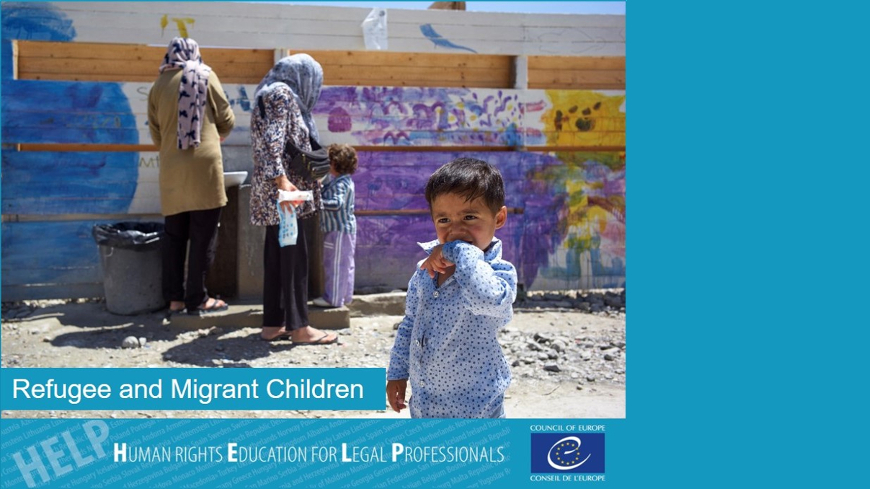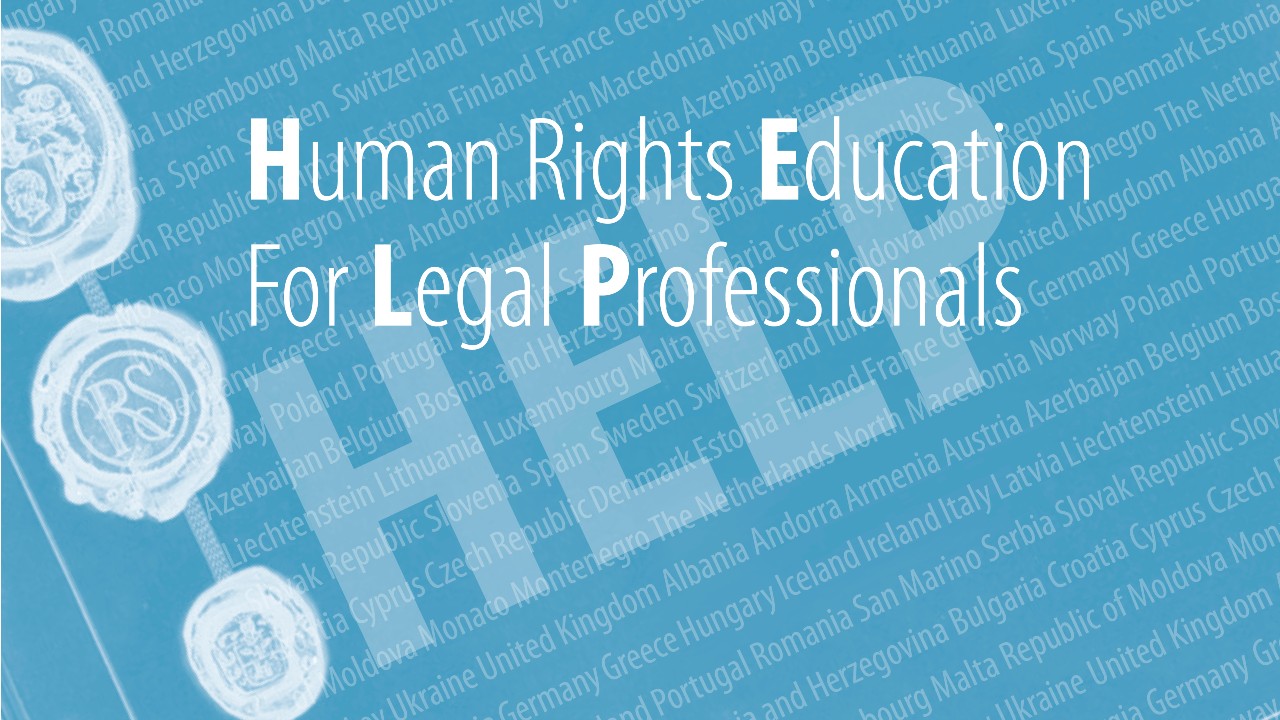The mass arrivals of those seeking refuge in Europe from war and persecution, as well as the continuing movement of persons across the Mediterranean and Turkey, act as a constant reminder of the precarious situation refugee and migrants find themselves in. All Council of Europe member states are affected by the refugee/migration flows, either directly or indirectly, as countries of origin, transit, destination or resettlement.
Children on the move, especially in an irregular way, remain one of the most vulnerable groups in Europe today. For instance, some 26,000 child migrants arrived in Europe in 2015 without any family. Regardless of their status and the fact that they are accompanied or not, children on the move may suffer persistent violations of their rights.
To prevent further such violations, the European Programme for Human Rights Education for Legal Professionals (HELP), jointly with the Office of the Special Representative of the Council of Europe Secretary General on Migration and Refugees, Tomáš Boček, developed a HELP course on Refugee and Migrant Children. The course is one of the measures implementing the Council of Europe Action Plan on protecting Refugee and Migrant Children in Europe (2017-2019).
This course explains how critical issues are addressed in the international and European legal framework and provides an overview of the relevant case-law of the European Court of Human Rights. It allows legal and other professionals to improve their knowledge and skills on the existing standards in this area and to apply them in their daily work.
It is developed in an interactive way and includes various practical exercises through seven modules:
- Introduction to the legal framework (the specific rights of refugee and migrant children;
- Child-friendly procedures (the best interests of the child assessment; identification of children; access to information; reception conditions; appointment of a guardian; legal representation; access to asylum and migration procedures; (forced) return of children)
- Alternatives to detention (the legal framework; alternatives to child immigration detention; safeguards and standards)
- Family reunification (the importance of family reunification; international and European standards; application of the principles to refugee and migrant children)
- Social rights and integration (adequate standards of living; education; safe work; health; integration and durable solution)
- Guardianship (the legal framework; timing and appointment of a guardian; monitoring and complaints; volunteer and professional guardians; guardians and legal representatives; principles for guardians)
- Age assessment (the legal framework; the benefit of the doubt; non-invasive and holistic age assesment procedures; legal remedies)
You can now enrol to this course in English on the HELP e-learning platform. By the end of 2018 it is expected to be translated into French, Italian, Greek and Turkish.
For more information, you can access Tomáš Boček’s speech and presentation on the course, given during the 2018 HELP Network Conference.





